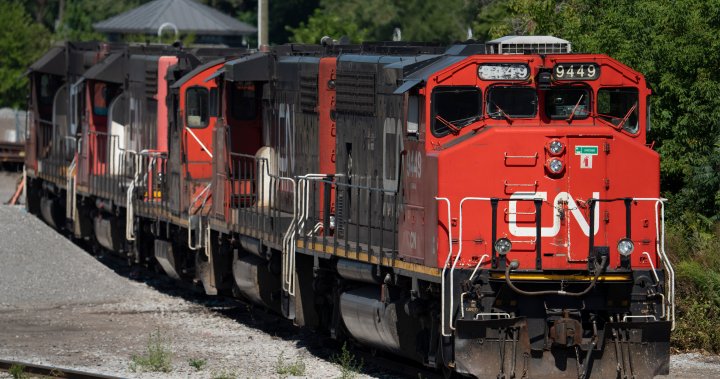Paragraph 1: Averted Strike and Ratification of New Collective Agreement
Unifor, the union representing over 3,000 Canadian National Railway (CN) employees in its Council 4000 and Local 100 committees, announced the successful ratification of a new four-year collective agreement on Sunday, January 29, 2023. This agreement effectively averts a potential strike that had been looming since the union authorized strike action in December 2022 if a deal wasn’t reached by January 1, 2023. The ratification brings to a close several months of negotiations, which began in September 2022, and secures key improvements for Unifor members working at CN terminals and headquarters across Canada.
Paragraph 2: Key Provisions of the New Agreement
While the specific details of the agreement haven’t been fully disclosed, Unifor highlighted key improvements in wages, benefits, and job protections for its members. These gains reflect the union’s bargaining priorities, which included addressing concerns about the pension plan and securing job security in addition to wage increases. The successful negotiation of these key areas underscores the importance of the Unifor members’ contributions to CN’s operations, as emphasized by Unifor National President Lana Payne. This agreement provides stability for both the workers and the company, allowing CN to continue its crucial role in Canada’s transportation network.
Paragraph 3: The Importance of Rail Transportation in Canada
Canada’s vast geographical expanse makes rail transportation a critical component of its economy. As the world’s second-largest country by area, Canada relies heavily on its railway system for the efficient and cost-effective movement of various commodities and goods across long distances. From natural resources like lumber, minerals, and oil to manufactured goods and agricultural products, the rail network connects producers to consumers both domestically and internationally. A disruption in rail service, such as a strike, would have significant economic repercussions, impacting supply chains and potentially leading to shortages and price increases.
Paragraph 4: The Negotiation Process and Averted Crisis
The negotiations between Unifor and CN, initiated in September 2022, were marked by the union’s firm stance on securing improved working conditions for its members. The authorization of a strike in December underscored the union’s resolve and placed pressure on CN to reach a satisfactory agreement. The successful ratification of the agreement just days before the strike deadline demonstrates the commitment of both parties to finding a solution that addresses the needs of the workers while ensuring the continued operation of Canada’s essential rail infrastructure. The averted strike safeguards the stability of Canada’s supply chains and prevents potential disruptions to the national economy.
Paragraph 5: Implications for Labor Relations and the Transportation Sector
This successful negotiation between Unifor and CN has broader implications for labor relations in Canada’s transportation sector. The agreement sets a precedent for future negotiations and highlights the importance of collective bargaining in securing fair wages, benefits, and job protections for workers. It also underscores the crucial role that unions play in advocating for their members’ interests and ensuring that their contributions are recognized and valued. The outcome of this negotiation can influence similar discussions in other industries, particularly those involving essential services where disruptions can have significant economic and social consequences.
Paragraph 6: Looking Ahead: Implementing the Agreement and Future Challenges
With the ratification of the new collective agreement, the focus now shifts to its implementation. Both Unifor and CN will need to work collaboratively to ensure the smooth rollout of the new terms and address any potential challenges that may arise. The long-term success of the agreement will depend on ongoing communication and a commitment to maintaining a positive labor-management relationship. As the transportation sector continues to evolve, both the union and the company will need to adapt to new technologies and changing market conditions to ensure the continued viability and competitiveness of CN, while also protecting the rights and well-being of its workforce.

